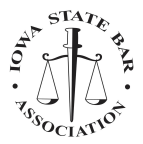Although workplace disruptions associated with the pandemic have passed, many employees continue to work from home. If a remote worker has to take time off from work, they often have questions regarding FMLA leave eligibility and how it applies to their unique employment situation. Recently the Department of Labor (DOL) issued guidance on how to apply FMLA eligibility rules for telecommuters and remote workers.
Is My Employer Subject to FMLA?
Employers with 50 of more employees working at a distance within 75 miles of the worksite are required to provide FMLA leave to eligible employees. Because a remote teleworkers residence is not considered a worksite, new guidance identifies the remote worker’s worksite as the office they report to or where assignments are derived from to determine FMLA eligibility. If the employer has 50 or more employees working within 75 miles and/or has remote workers reporting to or deriving assignments from the worksite, they must follow FMLA rules. For more information regarding eligibility under FMLA as it applies remote workers, see the Department of Labor (DOL) Wage and Hour Division’s Field Assistance Bulletin (FAB No. 2023-1). Contact an experienced employment law attorney for more information regarding FMLA leave eligibility.
Protections Offered to Employees Under FMLA
Not long ago, an employee dealing with a health problem often lost their job if they needed to take extended time off from work. With the passage of the Family Medical Leave Act (FMLA), eligible employees who work for a covered employer can now take 12 weeks of unpaid, job-protected leave in a 12 month period for a number of reasons including:
Leave associated with the birth of a child or placement of a child via adoption or foster care;
To provide care for a spouse, child, or parent who has a qualifying serious health condition;
For the employee’s own qualifying serious health condition that makes the employee unable to perform their job;
For qualifying exigencies related to the foreign deployment of a military member who is the employee’s spouse, child, or parent.
up to 26 weeks of FMLA leave in a single 12-month period to care for a related service member’serious injury or illness.
Requesting FMLA Leave
Employees must provide 30 days advanced notice of their need for FMLA leave where possible, or notify an employer as soon as possible. An employer will inform the employee if they qualify for leave under FMLA, which the employee may take on an intermittent or reduced schedule dependent on medical necessity, or take the full 12 weeks where appropriate. Employers’ may require that an employee use accrued paid leave, in accordance with the employer’s paid leave policy while taking FMLA.
Benefits and Protections Under FMLA Leave
Many who take time off from work, whether it is to take care of a new baby or because they or a family member is sick, worry that they will lose health insurance benefits while they are on leave. They may also be concerned that their hard-earned position at work will be awarded to another employee while they are away. Fortunately, benefits and protections afforded by FMLA leave include the continuation of an employee’s health insurance coverage and job restoration to the same job, or nearly the same job, with the equivalent pay, benefits, terms and conditions when an employee returns to work after FMLA leave.
Employee Eligibility for FMLA Leave
If an employee works for an employer covered under FMLA, the employee is eligible for FMLA leave after being employed for at least 12 months with at least 1,250 hours of service in the 12 months preceding the FMLA leave request.
An employer may not interfere with an employee’s FMLA rights or retaliate against an employee for requesting or ultimately taking job protected leave under FMLA.
Contact an Experienced FMLA Attorney for Help
If you have questions regarding FMLA leave eligibility for regular or remote workers, contact our office for more information. If you have been retaliated against or suffered an adverse employment action after requesting or taking FMLA leave at your Iowa workplace, contact Des Moines employment law attorney Marc Humphrey for immediate assistance today.






